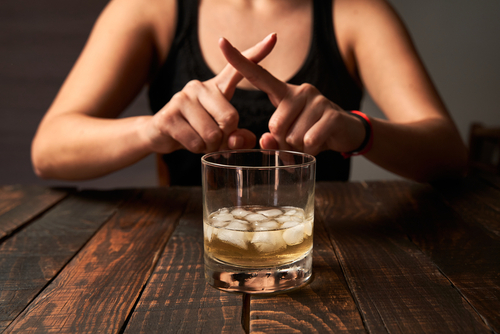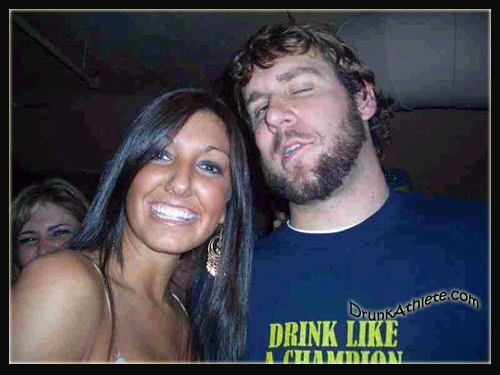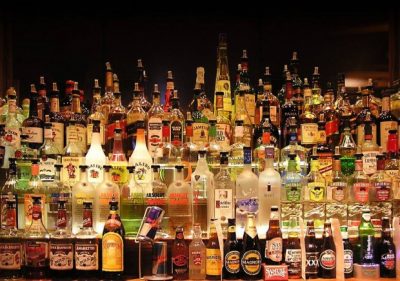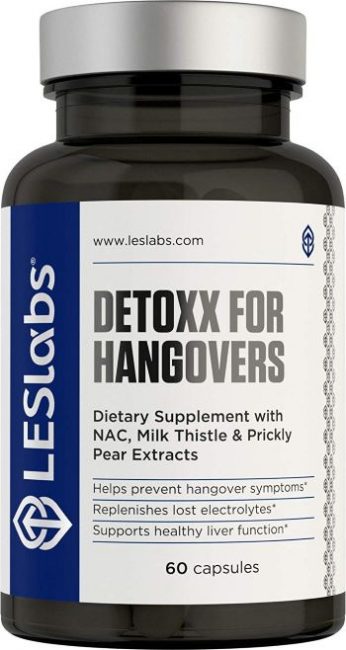Athletes have a lot to lose. They are responsible for their own performance, but also for the team depending on them. Drinking alcohol can affect your athletic performance and it will also affect your chances of being accepted into college or being recruited into a professional sports team. It is important that you limit or avoid drinking alcohol as much as possible because it could have serious consequences in the future.
You should only drink if it’s an occasional celebration with friends after winning a championship game, not when you’re celebrating every time you make a basket during practice! Alcohol consumption leads to poor judgment which may lead to injury or death from drunk driving accidents, assaults, date rape drugs or even suicide attempts. The worst thing about this is that these risks are multiplied with the consumption of more than one alcoholic drink.

Alcohol can also lead to changes in your body chemistry that could affect athletic performance. Alcohol is a toxin that gets into your bloodstream within seconds after you drink it and takes hours to be eliminated from your system. Once alcohol is in your system, it prevents the liver from producing glucose which is the preferred fuel source for your muscles and other cells.
Since your liver is busy breaking down the toxin, it can’t produce enough glucose to allow your muscles to function at their best so you won’t be able to perform well in competition. It’s just like when your car is stuck in the snow and won’t start, you can’t get anywhere until the engine is warmed up and the car is running again.
What is Alcohol? Why do People Drink it?
Alcohol is defined as any type of drink containing ethanol (CH3CH2OH), which is produced by yeast fermenting sugars in fruits, vegetables, and grains. Ethanol affects areas of the brain responsible for inhibiting behaviors involved in fear and anxiety to promote socialization. Alcohol also acts as a sedative-hypnotic to improve moods and reduce stress and tension.

Why Do People Stop Drinking Alcohol?
People usually stop drinking alcohol for one of two reasons: because they no longer enjoy it or because their family and friends no longer allow them to drink. Although abstinence from drinking is the healthiest course, some people may decide to continue consuming alcohol in moderation.
The Dietary Guidelines for Americans define moderate consumption as up to 1 drink per day for women and 2 drinks per day for men. If you choose to drink, remember that beverages with higher alcohol content (such as wine and beer) usually contain more carbohydrates than low-alcohol beverages (such as coolers and light wines). This should be considered when limiting caloric intake while staying within daily carbohydrate limits required by certain athletes .
Effects on Athletic Performance
Alcohol consists of 7 calories per gram, which is almost as much as carbohydrate (7.1) and protein (7). Alcohol has a diuretic effect on athletes because it causes the body to eliminate fluids through urination. It dehydrates the brain, muscles, bones, blood, and other vital organs. This is definitely not something you want as an athlete.
The following are ways alcohol affects an athlete’s ability to compete:
- Slows reaction time and impairs balance
- Increases fatigue by depleting glycogen stores in muscles
- Disturbs coordination between muscles required for smooth movements
- Reduces the ability to concentrate and diminishes mental alertness
- Increases risk of serious injury because of loss of balance and coordination
Alcohol also has a psychological effect on performance. People might think they are more skilled at performing certain tasks after drinking, such as singing or dancing. You may become more relaxed before performing at your best. However, alcohol will not solve any problems that can affect athletic performance. Athletes should remember their limits and stay within them so that they can perform at their peak level without compromising their health.
What Role Does Alcohol Play in Professional Sports?
According to one study, 21% of college athletes drink beyond moderation (consume 5 or more drinks). Drinking among professional athletes is prevalent in many sports. An example is the National Football League (NFL), where some players face disciplinary action for breaking alcohol and drug use policies. A common example of an athlete who drinks excessively is baseball player, Dock Ellis, who once pitched a no-hitter while under the influence of LSD. According to Ellis, he did not realize it was a no-hitter until teammates started congratulating him after the game.
Despite its legalization in several states, marijuana carries even greater risks than drinking when considering athletic performance because it has been found to decrease hand steadiness and slow reaction time compared to individuals without THC in their system. A study conducted by researchers from Maastricht University, The Netherlands revealed that driving under the influence of cannabis led to a decreased ability to judge distance and speed.
Although the use of marijuana is prohibited by the World Anti-Doping Agency, many professional athletes have admitted to using it for medical purposes. A common example of a player who has used marijuana is Brandon Marshall, a wide receiver for the Denver Broncos. In July 2011, Marshall announced that he was using marijuana to treat his attention deficit hyperactivity disorder (ADHD) instead of Ritalin because it did not give him side effects such as depression and weight gain.
What Is Alcohol Abuse?
An investigation conducted by ESPN revealed that 78% of football players in the Football Bowl Subdivision admitted they consumed alcohol during their college careers, with 42% admitting they drank before games. According to research from the American College Health Association, 65% of college and university students had at least one drink in the past month . According to the National Institute on Alcohol Abuse and Alcoholism (NIAAA), alcohol abuse is a pattern of drinking that results in harm to relationships, academics, health , or work. A person’s tolerance for alcohol may lead him or her to drink more than necessary because he or she can still function while under the influence. It is important for athletes to recognize when their level of intake has reached risky levels.
Famous Athletes Who Used Alcohol
Drinking is also popular among professional athletes, but it can affect their careers adversely even when it does not coincide with game days. The NFL has punished several players for violating its substance abuse policy related to alcohol use. For example, in August 2011 Oakland Raiders’ cornerback, Chris Johnson was suspended for two games after he failed to show up for practice and assaulted a teammate during a drunken tantrum. Johnson’s fellow cornerback, Stanford Routt, was involved in an altercation with his wife after he came home late from a Raiders’ team dinner. In September 2013, Cincinnati Bengals quarterback, AJ McCarron violated the NFL’s personal conduct policy after he was arrested for fighting with another man at a bar in northern Kentucky. These examples demonstrate that not only can drinking affect performance on the field but it can also harm relationships off of it.
Related: Which Alcohol to Drink and Which to Avoid on a Diet
Conclusion
There are many different reasons why athletes should not drink alcohol. Alcohol can have a negative effect on performance, lifestyle choices and general health. To stay healthy and do their best in competitions, athletes need to look carefully at what they put into their bodies.
They need to ensure that they only eat the right foods and drink the right drinks for optimal performance. Many of these foods are high in protein, but avoiding alcohol is important too. By staying away from alcohol an athlete can help keep themselves safe without losing out on anything during competitions or while socializing with friends.

Ryan is a former college wrestler and lifelong fitness fanatic with over 25 years in the industry. He’s run half marathons, tackled mud runs, placed in body transformation contests, and coached everything from wrestling to girls’ soccer.
Along the way, he’s tested hundreds of supplements and built a deep well of supplement knowledge. His work has appeared in Muscle & Strength, Testosterone Junkie, The Sport Review, and more. Today, he’s the editor-in-chief of this site, still training hard and helping others reach their goals. Connect with him on LinkedIn below.









Be the first to comment